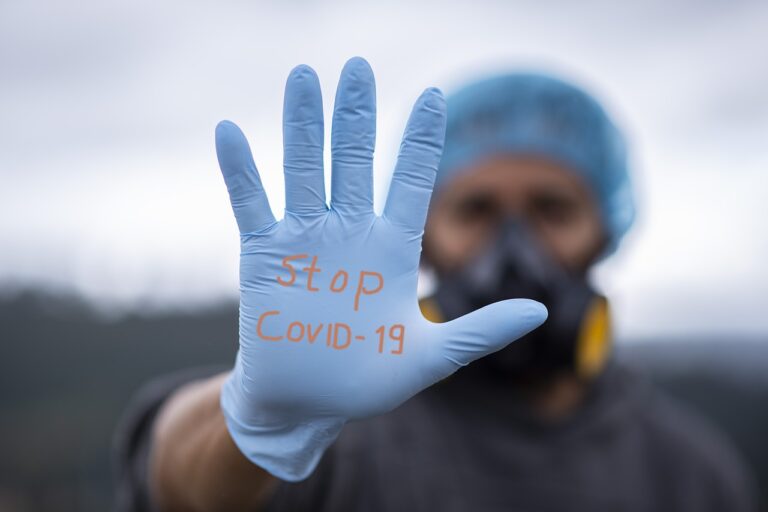How to Address Speech Therapy Needs in Veterans Health Programs
11xplay pro, diamondexch9, sky exchange bet:Addressing Speech Therapy Needs in Veterans Health Programs
As veterans return from their service, they may face a range of physical and mental health challenges. Among these challenges, speech and communication difficulties can be particularly impactful on their daily lives. Speech therapy can play a crucial role in improving these issues, yet it is often underutilized in veterans health programs. In this article, we will explore how speech therapy can benefit veterans, why it is important to address these needs in health programs, and provide practical tips for implementing speech therapy services for veterans.
Understanding the Importance of Speech Therapy for Veterans
Speech therapy is a specialized form of treatment that focuses on improving communication skills, language development, and swallowing abilities. For veterans who may have experienced traumatic brain injuries, post-traumatic stress disorder, or other conditions that affect speech and communication, speech therapy can be highly beneficial.
By working with a speech-language pathologist, veterans can learn techniques to improve their speech clarity, language skills, and cognitive abilities. Speech therapy can also help with social communication, such as engaging in conversations, expressing emotions, and interpreting nonverbal cues.
In addition to addressing speech and communication difficulties, speech therapy can also play a role in improving swallowing function for veterans who have dysphagia, a condition that affects the ability to swallow safely and effectively.
Overall, speech therapy can significantly enhance the quality of life for veterans by enabling them to communicate more effectively, engage in social interactions, and participate in everyday activities with greater independence.
Implementing Speech Therapy in Veterans Health Programs
While speech therapy can offer numerous benefits for veterans, it is essential to ensure that these services are readily available and accessible within veterans health programs. Here are some key ways to address speech therapy needs in veterans health programs:
1. Collaboration with Speech-Language Pathologists: Develop partnerships with speech-language pathologists who have experience working with veterans. These professionals can provide expertise in assessing and treating speech and communication disorders specific to the veteran population.
2. Integration of Speech Therapy Services: Incorporate speech therapy services into multidisciplinary care teams within veterans health programs. This can help ensure that veterans receive comprehensive care that addresses their speech and communication needs in conjunction with other health concerns.
3. Training for Healthcare Providers: Educate healthcare providers within veterans health programs about the benefits of speech therapy and how to refer veterans for these services. This can help increase awareness and utilization of speech therapy among veterans and their healthcare providers.
4. Telehealth Options: Explore telehealth options for delivering speech therapy services to veterans who may have limited access to in-person care. Telehealth can provide convenient and efficient ways for veterans to receive speech therapy services, particularly for those in rural or underserved areas.
5. Tailored Treatment Plans: Develop individualized treatment plans for veterans receiving speech therapy services to address their specific needs and goals. Consider the unique challenges and experiences of veterans when designing and implementing speech therapy interventions.
6. Outcome Monitoring and Evaluation: Monitor the progress of veterans in speech therapy and evaluate the effectiveness of interventions in achieving their communication goals. This can help optimize treatment approaches and ensure that veterans are receiving the most beneficial care.
By implementing these strategies, veterans health programs can effectively address the speech therapy needs of veterans and improve their overall health and well-being.
FAQs:
Q: How can veterans access speech therapy services through VA health programs?
A: Veterans can access speech therapy services through the Department of Veterans Affairs (VA) healthcare system by obtaining a referral from their primary care provider or specialty provider. Veterans can inquire about available speech therapy services at their local VA medical center or clinic.
Q: Are speech therapy services covered by VA benefits for veterans?
A: Yes, speech therapy services are typically covered by VA benefits for veterans who are eligible for VA healthcare. Veterans should consult with their VA healthcare provider to determine their eligibility and coverage for speech therapy services.
Q: Can veterans receive speech therapy services through community providers?
A: In some cases, veterans may receive speech therapy services through community providers if these services are not readily available within VA healthcare programs. Veterans should discuss their options with their VA healthcare provider to explore different avenues for accessing speech therapy services.
In conclusion, addressing speech therapy needs in veterans health programs is essential for supporting the overall well-being of veterans and improving their quality of life. By integrating speech therapy services, collaborating with qualified professionals, and tailoring interventions to meet the specific needs of veterans, healthcare programs can effectively address speech and communication difficulties in this population. By prioritizing speech therapy as part of comprehensive care for veterans, we can ensure that they receive the support and resources they need to thrive after their service to our country.







